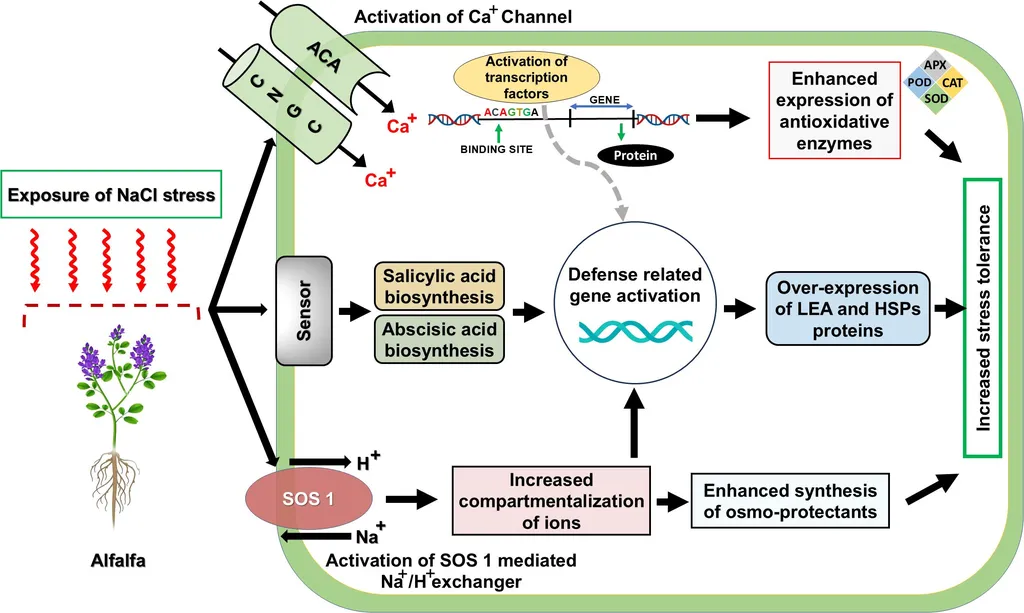In the heart of China’s Henan province, a groundbreaking study is unraveling the molecular secrets of how a simple antioxidant can help alfalfa plants withstand the toxic onslaught of cadmium, a heavy metal pollutant that’s increasingly threatening global agriculture. The research, led by Mengting Jiang from the Henan Key Laboratory of Innovation and Utilization of Grassland Resources at Henan Agricultural University, offers a promising path forward for crop resilience in contaminated soils.
Cadmium, a byproduct of industrial activities and a component of some phosphate fertilizers, is a silent killer of crops. It stunts growth, damages cells, and ultimately reduces yields. But Jiang’s team has found that glutathione (GSH), a naturally occurring antioxidant, can help alfalfa plants fight back. “We’ve seen significant improvements in plant growth and health when we applied GSH under cadmium stress,” Jiang explains. “It’s a game-changer for alfalfa cultivation in contaminated soils.”
The study, published in *Industrial Crops and Products*, integrated transcriptomics and metabolomics to reveal the molecular mechanisms behind GSH’s protective effects. The researchers found that GSH boosts the expression of genes and accumulation of metabolites associated with plant hormone signal transduction, enhancing the plant’s stress response. It also stimulates the biosynthesis of amino acids and soluble sugars, providing essential building blocks for growth and stress resistance.
One of the most intriguing findings is that GSH upregulates genes involved in lignin biosynthesis, strengthening the cell wall and acting as a barrier against cadmium. “This is a novel insight,” Jiang notes. “It shows that GSH doesn’t just help plants cope with stress; it actively fortifies them against it.”
The commercial implications of this research are substantial. Alfalfa, a vital forage crop, often faces cadmium stress in agricultural soils. By understanding and harnessing the power of GSH, farmers could improve yields and quality, even in contaminated fields. Moreover, the study’s findings could extend beyond alfalfa, offering insights into cadmium tolerance mechanisms in other crops.
Looking ahead, this research could shape the development of cadmium-tolerant crop varieties, a crucial step towards sustainable agriculture in an era of increasing soil pollution. As Jiang puts it, “Our work is just the beginning. The molecular insights we’ve gained could pave the way for innovative strategies to enhance crop resilience and ensure food security.”
In the face of growing environmental challenges, this study offers a beacon of hope, demonstrating the power of scientific research to drive agricultural innovation. With further exploration and application, the benefits of GSH in mitigating cadmium stress could revolutionize alfalfa farming and beyond.

